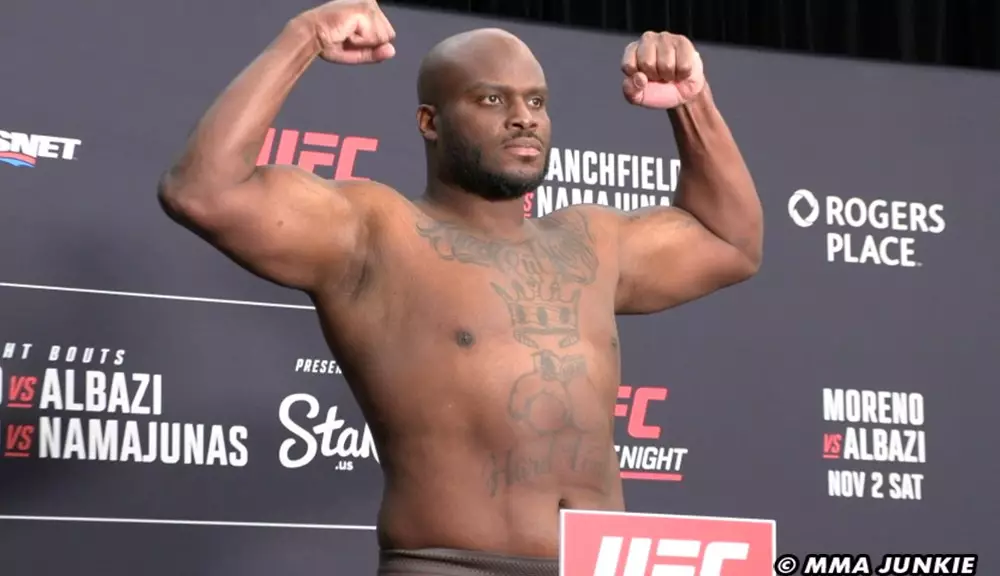In the fast-paced world of mixed martial arts, unexpected developments are commonplace, and fighters often have to navigate the unpredictable landscape of injuries, weight issues, and other unforeseen circumstances. This was exemplified recently when Derrick “The Black Beast” Lewis was unexpectedly pulled from his scheduled fight against Jhonata Diniz at UFC Fight Night 246 in Edmonton, Canada. The announcement came late Friday, just one day prior to what was supposed to be a highly anticipated matchup. Such withdrawals are not only disappointing for fans but can also have significant repercussions for the fighters involved, informing the broader implications of health and safety in combat sports.
The promotion did not disclose specific details regarding the medical issues that led to Lewis’s withdrawal, although it clarified that they were not related to his weight cut. This lack of clarity raises questions about the seriousness of the situation, underscoring the complexities of athlete health management in the UFC. Athletes are often expected to push through physical adversity, but the promotion’s decision to protect Lewis indicates a more significant underlying concern.
With Lewis’s absence, the fight card remains intact but leaves a notable gap in intrigue. Lewis, with an impressive MMA record of 28-12 and a fan-favorite reputation, had been expected to deliver a thrilling performance. His opponent, Diniz, who boasts an unblemished record of 8-0, was eagerly seeking this opportunity to face a seasoned veteran. This cancellation likely hampers Diniz’s trajectory within the UFC, as high-profile bouts often lead to increased visibility and potential title contention.
Despite the unfortunate news about Lewis, UFC Fight Night 246 will proceed with its scheduled fights. The card brings forward a variety of matchups, featuring notable names such as Brandon Moreno and Rose Namajunas, who are set to showcase their skills in front of an eager audience. The show must go on, but it doesn’t erase the disappointment of fans and fighters alike who were looking forward to the clash between Lewis and Diniz.
The UFC’s ability to adapt and create a compelling fight card, despite individual withdrawals, showcases the organization’s resilience and commitment to delivering entertaining content. However, the promotion must continue to prioritize the health of its athletes, ensuring that fighters are physically and mentally prepared for bouts, solidifying the sport’s future sustainability.
Looking ahead, both Lewis and Diniz face crucial moments in their careers. With Lewis’s track record and fan appeal, he is likely to receive another opportunity in the octagon once his health issues are resolved. Conversely, Diniz must now recalibrate his expectations and strategies, potentially looking for new opponents to maintain momentum in a competitive heavyweight division. Each athlete must be ready to adapt, illustrating the ever-changing nature of mixed martial arts where circumstances can shift rapidly.
The withdrawal of Derrick Lewis serves as a reminder of the ever-present unpredictability in combat sports. It challenges both fighters and fans to remain flexible as they navigate the highs and lows of the sport while underscoring the importance of health and safety for athletes. As the UFC continues to rise in popularity, maintaining a focus on these critical aspects will be vital for the organization’s long-term success.

